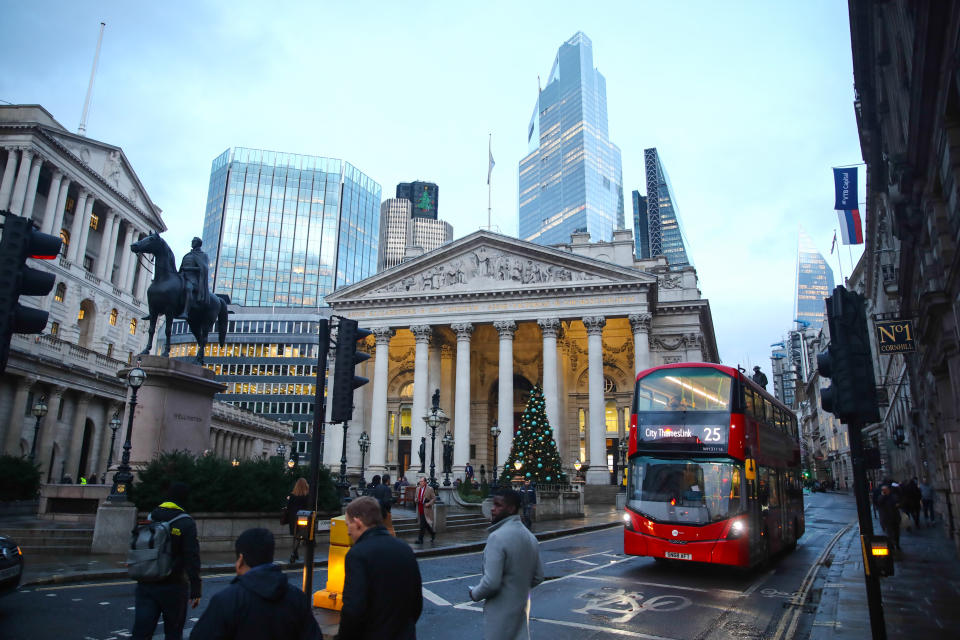UK inflation stays at lowest level in three years ahead of Christmas

The UK inflation rate stayed at 1.5% in November compared to the same month last year — slow price growth that will be a boost to households ahead of Christmas, according to the Office for National Statistics (ONS).
Analysts had expected the rate of price growth to slow to 1.4% in November.
While the figure is in line with Bank of England forecasts, it is markedly lower than the bank’s 2% target.
“The headline rate of inflation remained steady with prices rising across a variety of goods and services such as chocolate, concert tickets and package holidays, offset by falling hotel costs and cigarette prices rising substantially slower than this time last year,” said Mike Hardie, the head of inflation at the ONS, on Wednesday.
READ MORE: Boris Johnson and ministers to boycott Davos
Below-target inflation would normally prompt the Bank of England to slash interest rates and introduce stimulus measures designed to boost the economy.
The central bank’s monetary policy committee will meet on Thursday to make its final interest rate decision of 2019.
While the bank has been reticent to make any major monetary policy decisions ahead of the UK’s departure from the European Union, two members of the committee last month unexpectedly voted to lower interest rates.
The members, Michael Saunders and Jonathan Haskel, cited risks from Brexit, a slowing in global growth, and signs of a weaker job market in the UK as reasons for their decision.
Though prime minister Boris Johnson’s election win has reduced Brexit uncertainty to some degree, the committee as a whole is still expected to leave interest rates changed.
In November, declines in the price of accommodation services and tobacco were offset by a jump in the prices of food, recreation, and culture, the ONS said.
There was a notable increase in the prices of boxes and cartons of chocolates and chocolate-covered ice creams between October and November compared to the same two months in 2018.
READ MORE: Fiat Chrysler and Peugeot agree $50bn merger deal
There were similar increases for sugar, jam, syrups, confectionary and the chocolate category overall.
While the slower growth in prices will be a boost to households, whose spending has been a significant driver of Britain’s economy in recent years, there has also been a slowing of wage growth in the country.
This could put pressure on real earnings, the measure of actual spending power.
Last month, the Bank of England predicted that inflation would fall to as low as 1.25% in early 2020, primarily as a result of recently introduced caps on energy and water prices.
Bank of England chief Mark Carney, who will soon step down as governor, said however that the bank expected inflation to climb above its 2% target in about three years.
Separate figures released by the ONS on Thursday revealed that UK house prices grew by just 0.7% in October, the slowest growth in more than seven years.

 Yahoo Finance
Yahoo Finance 
